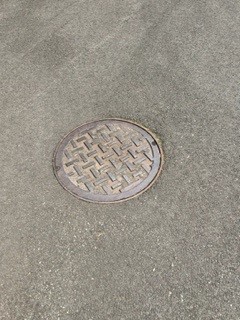-
-
Electrical system
-
Plumbing
-
Heating/central air conditioning
-
Overall structural issues
-
Water infiltration and drainage
-
Roof condition
-
Safety conditions – including the presence of mold or asbestos or other harmful contaminants
-
Scan for underground oil storage tanks
-
Evidence of termite infestation or damage by a licensed pest control expert.
-
Sewer line scope
-
Social Links Widget
Click here to edit the Social Media Links settings. This text will not be visible on the front end.
Buying and Selling •
July 20, 2023
What’s going on down there? Trends in Sewers
by Mary DePaola

Do you love the latest fad? The term fad conjures up visions of wild print shirts or bell-bottom jeans. While fads are fun in fashion and art and popular culture, some fads or trends spring up as an expensive marketing ploy. Other trends are the result of new knowledge. Almost every profession experiences trends or fads that have an impact on their methodology. Even medicine and law experience fads! Often these trends in law and medicine have a direct impact in real estate because health and environmental hazards affect the sale and purchase of real estate. As a real estate sales broker, I can tell you trends come into play in sales of property, mainly in the home inspection.
Home inspection has been a vital part of the home buying process since the late 1980s. Traditionally, the buyers hire a licensed inspector to look at the systems of the home – electrical, plumbing, heating/central air conditioning, etc. Home inspectors also assess overall structural issues, water infiltration and drainage, roof condition, and safety. The entire property should be scanned for underground oil storage tanks. Evidence of termite infestation or damage should be examined by a licensed pest control expert. Structural issues may need additional investigation by an architect or structural engineer. Due Inspectors may bring individual contractors who hold specific licenses in some areas or many home inspector have licenses to cover all of these areas.
The most recent trend in the home inspection process is scoping the sewer line. Now there is a trends that stinks – literally! Typically in 2023, it may cost the buyer $800+ to have a plumber run a camera from the basement to the connection to the main municipal sewer line. But the cost of replacing the sewer line is $8,000+! With the age of housing stock in our area of New Jersey, the sewer line is an area of concern and should definitely be evaluated for any possible problems.
Here are the things that licensed inspectors should investigate during the home inspection:
Why do we look at all these items?
So that the buyer has a complete understanding of the house and property they are purchasing. They have a full picture of the items that they will need to repair or upgrade. If the issues are significant enough, the seller often has to offer a credit to the buyer so that the issue can be addressed once they take ownership.
Whether you are buying or selling, my depth of experience provides you with the range of options to deal with all of these topics. Even the issues that stink!
Related Articles


 Facebook
Facebook
 X
X
 Pinterest
Pinterest
 Copy Link
Copy Link


